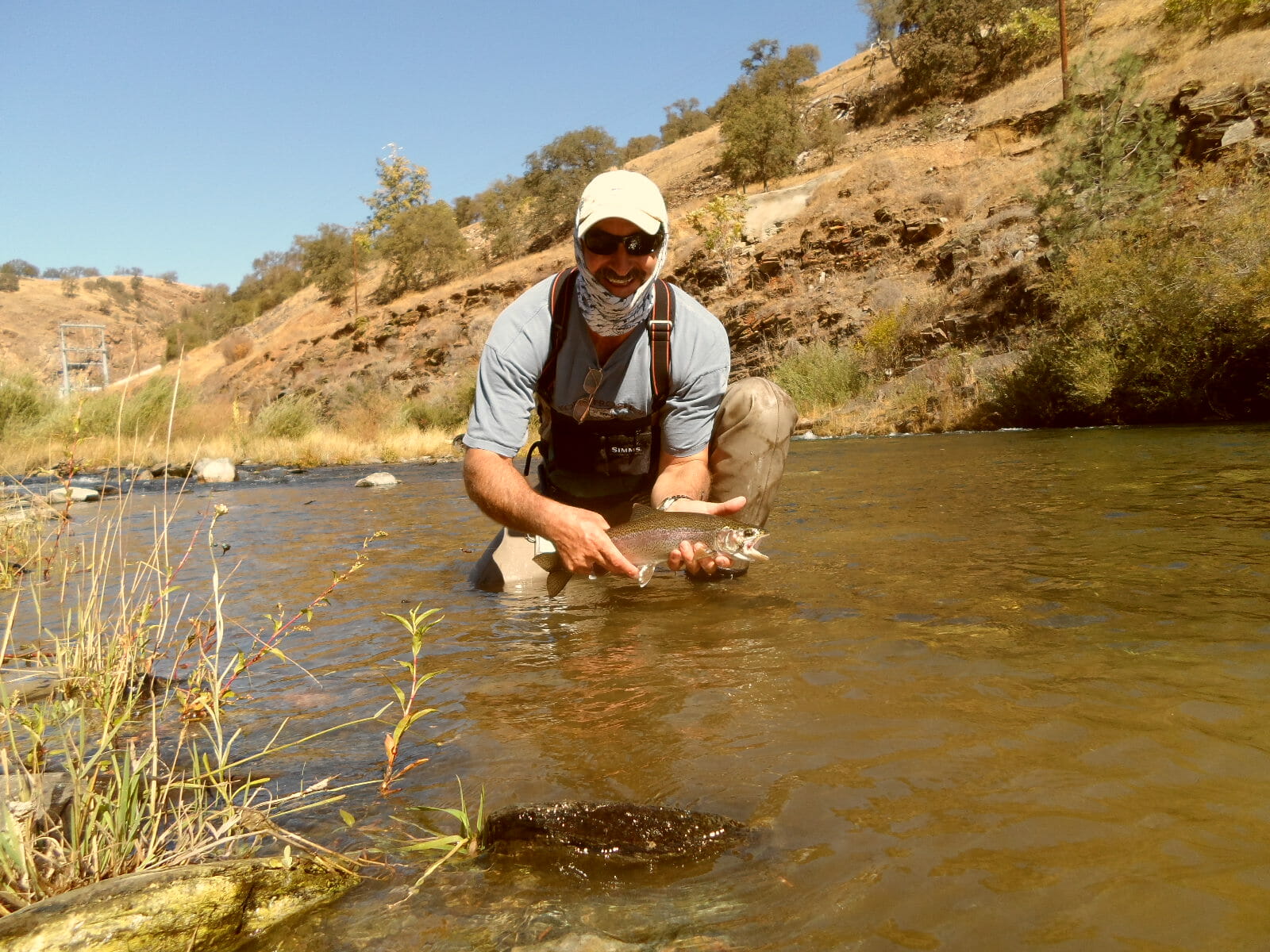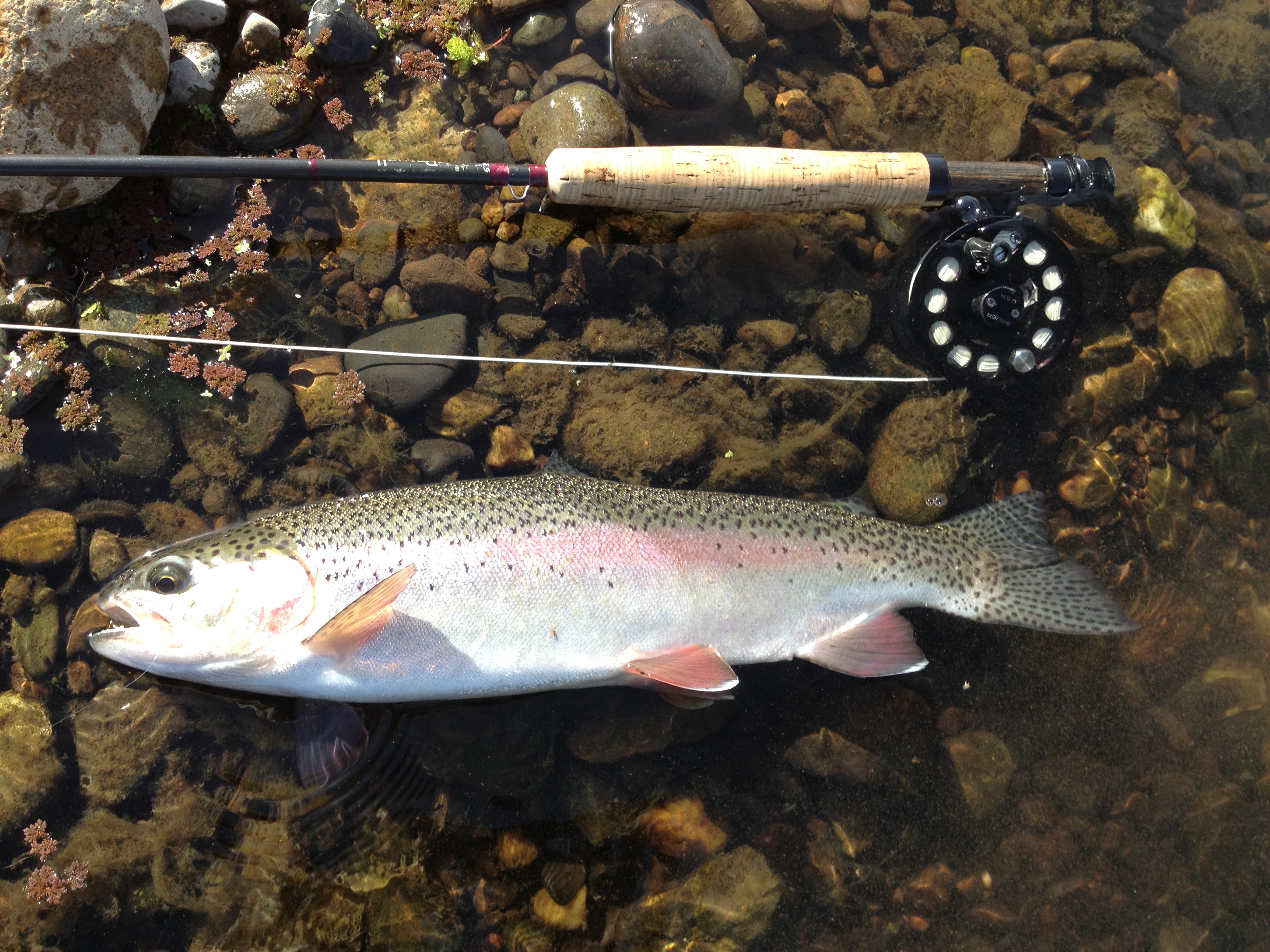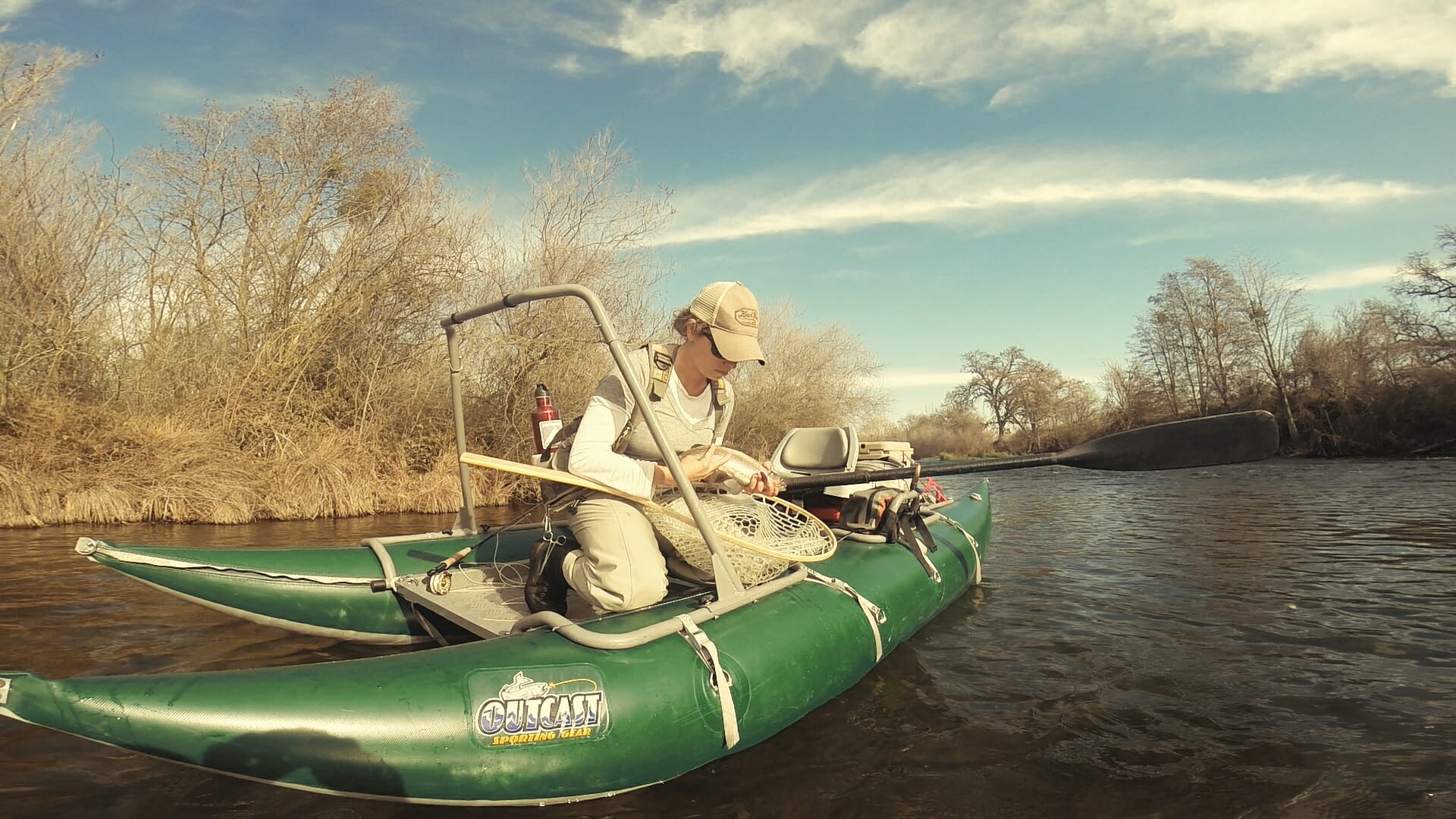Central Valley salmon and steelhead runs, such as those in California’s Merced River (above), have been in decline for decades due primarily to lack of water at critical times. Phase I of the Bay-Delta Plan, in which the State Water Board is considering new flow standards for environmental water needs, is our best chance to recover these iconic fish species in the Golden State.
By Chandra Ferrari
In 2017, the California State Water Resources Control Board will make a decision that will fundamentally affect rivers and streams that California anglers know and love. This decision could make or break California’s salmon fisheries and the multi-billion dollar commercial and recreational angling economy they support.
The water board’s decision pertains to streamflow and water quality objectives under Phase I of the Bay-Delta Plan. At issue is new proposed flow standards which would double, on average, the amount of water reserved for the environment in the lower San Joaquin River and its primary tributaries.10-03-13_SD on the Tuolumne (3).jpg

Even under the proposed new standards, two-thirds of the natural flow of the Merced, Tuolumne, and Stanislaus Rivers would still be diverted, mainly for agriculture.
(L) Wild rainbow trout, lower Tuolumne River
Trout Unlimited has been working for the past ten years to help improve habitat and flow conditions for Central Valley salmon and steelhead through the long process of developing the Bay-Delta Plan. The proposed new flow standards reflect our science-based position that Central Valley salmon and steelhead need more cold, clean water at critical times of the year than they have been receiving from federal and state water managers.
The importance of the water board’s process in correcting the imbalance between water allocations cannot be overstated. Simply put, the board’s adoption of strong new flow standards is the single best action that can be taken to restore Central Valley salmon and steelhead runs.
The Board’s decision on flow standards for the San Joaquin will be the first of its kind since 1995. Since the 1995 standards were adopted, populations of salmon, steelhead, and other native fishes have steadily declined as massive amounts of flow continue to be diverted from California’s rivers. Up to 90 percent of unimpaired flow (natural streamflow before diversions) is withdrawn from the lower San Joaquin’s tributaries at certain times of the year.
The board’s decision on new flow standards will have a significant impact on native species that call the San Joaquin/Sacramento Delta home, and their ability to persist in the face of climate change and future droughts. The board’s decision will also have a big impact on fishing opportunities, in both the short term and for future generations.native rainbow_Merced River_March 2014.jpg

(R) “half-pounder” steelhead, lower Merced River
It is critically important that anglers provide feedback to the water board in support of these considerations. The board is already hearing from those who want current levels of diversion from California rivers to continue or increase. These interests argue that we should try to restore fish populations principally by ramping up depredation controls and that salmon and steelhead can recover without dedicating more water to them. In effect, they argue for the status quo.
The status quo means virtually certain extirpation of some runs of fish. The status quo has transformed the San Joaquin River into one of the most degraded rivers in the country.
Truth is often hard to hear. The truth is that demand for water far exceeds supply in California-and that fish species, in particular, have been shouldering most of the burden of providing water for California, for decades. To keep some of our state’s unique natural heritage alive, we must better balance the allocation of this precious limited resource.
Please help us make sure the water board knows that the angling community unequivocally supports boosting flow standards for the lower San Joaquin River watershed, and reserving at least 40 percent of unimpaired flow for environmental needs.
You can submit comments in writing or attend one of several public hearings on this process. These hearings are:
- December 19, 2016-9 am * Merced Theatre, Merced
- December 20, 2016-9 am * Modesto Centre Plaza, Modesto
- January 3, 2017-9 am * CalEPA Headquarters Building, Sacramento
Comments can be emailed to commentletters@waterboards.ca.gov. Address your comments to:
Jeanine Townsend
State Water Resources Control Board
1001 I Street, 24th Floor
Sacramento, CA 95814
Please make the following points/recommendations (in your own words, if possible):
1. New flow standards should be higher than proposed. Scientific consensus holds that a minimum of 60 percent unimpaired flow is required to recover salmon and steelhead runs in the San Joaquin River system to self-sustaining levels.
2. The water board must objectively weigh the needs of fisheries and anglers in the current process. It must consider the wide-ranging benefits that all Californians receive from healthy fisheries and river ecosystems.
3. Significant opportunities exist to meet enhanced water quality standards and to save salmon from extinction in California, with minimal impact to the agricultural sector. But these opportunities must be fully considered and supported by new policy.
4. California has already tried alternatives favored by large water users to save salmon and steelhead, and these have failed. Dedication of more water, delivered at key times, must be the primary tactic for recovering fisheries and the Bay-Delta’s ecosystem. Central Valley salmon and steelhead runs are on the brink of extinction. We can no longer afford to experiment with strategies that don’t include more water (e.g. focus on removing other fish species they prey on young salmonids).
Click here for more information on proposed changes to the Bay-Delta Plan.
Chandra Ferrari is Water Policy Director for Trout Unlimited in California and Oregon.



